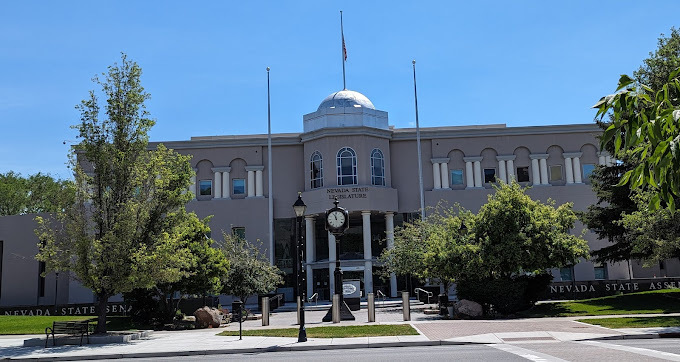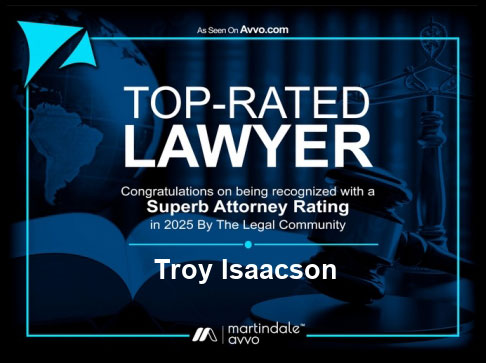ISAACSON LAW BLOG
Should An Attorney Be Consulted?

Should An Attorney Be Consulted?
A common concern we get from community-association managers is that clients ask them to act as the association’s legal counsel. Such requests by a board can leave the manager questioning what actions they can or cannot take on behalf of an association. And the law surrounding these concerns is somewhat vague and confusing.
Adding to this concern, if a manager acts outside of their authority, their license can be at stake. In this regard, NRS 116A.640 generally provides those actions a community-association manager cannot take. Among those prohibited actions is that a manager cannot provide any service that is outside the manager’s field of experience, competence or is prohibited by law or for which the manager is not licensed. NRS 7.285 prohibits any individual from practicing law in the state of Nevada if they are not legally authorized to do so.
In addition to action that can be taken against a manager’s license, penalties for the unauthorized practice of law can include up to $1,000 in fines and/or up to six months in jail for a first offense. But what actions is a community-association manager precluded from taking and how do they know when a line has been crossed?
Answering these questions can prove difficult as the law defining what actions might constitute the unauthorized practice of law is vague and complicated. Unfortunately, like most states, Nevada has not yet provided guidance on these issues. However, we can look to guidance provided in other states to see what might not be allowed. In 1996, the Florida Supreme Court issued an advisory opinion, which was reconsidered in 2013. The opinion provides specific guidance on what actions a community-association manager can and cannot perform. A copy of the Florida Supreme Court’s advisory opinion can be found at this link. Though the opinion applies directly to Florida community managers, it can provide guidance for those licensed in Nevada.
According to the Florida Supreme Court, the following actions do not constitute the practice of law:
- – Completing State Forms
- – Drafting Certificates of Assessments
- – Preparing Election Forms and Ballots
- – Preparing Notices of Meetings and Meeting Agendas
- – Preparing Affidavits of Mailing
However, the court found that the following actions do constitute the authorized practice of law:
- – Preparing Lien Documents
- – Determining the Timing, Method and Form of Notice Required for Association Action
- – Preparation, Review, and/or Drafting Contracts
- – Determining Voting Rights and the Necessity for Voting to Take Association Action
- – Responding to Questions Concerning the Application of Law to Specific Matters Being Considered or Giving Advice Regarding the Legality of An Action
- – Drafting Proxies
- – Giving Advice Regarding the Exercise of a Right of Approval or First Refusal
- – Interpreting or Making Changes to the Declaration of Covenants, Conditions and Restrictions and/or the Bylaws
- – Any Activity That Requires Statutory or Case Law Analysis to Reach a Legal Conclusion
If a question arises of whether the manager or attorney should perform certain work, there are two things the Board should keep in mind. First, if the association has the manager perform work which should be done by an attorney, the Board may lose protection of the business judgment rule. Under the business judgment rule, the board is protected from personal liability for errors in judgment, so long as their decision was made in good faith, with a belief it is in the association’s best interests, was made with the care (including reasonable inquiry of the appropriate professionals), that a reasonable Board would have taken under the same or similar circumstances. NRS 116.3103. While the association may still be liable for a Board’s poor decision, where the requirements of the business judgment rule have been met, the individual Board members will be protected from personal liability. That protection goes away where the Board has failed to act reasonably, including a failure to consult with the appropriate professionals.
Second, in the event things go wrong and litigation ensues, the association’s insurance provider may refuse coverage. In this circumstance, the manager, the Board and/or the association may be liable for any damages suffered by the complaining party.
In general, if the manager believes a question or action may be outside of their authority or expertise, it is likely best that an attorney be consulted. And though a Board may have the best of intentions by trying to save the community money, in the long run, poor decisions can prove more costly to the community.
For more information on how to best protect your community, contact Isaacson Law at (702) 529-2559.

LOCATION
- (702) 529-2559
- 4730 S. Fort Apache Rd, Suite 280 Las Vegas, Nevada 89147
BUSINESS HOURS
Monday – Friday: 8:30am to 5:30pm
Recent Blog Posts

Legislative Session 4-20-25

Legislative Session 3/15/25



